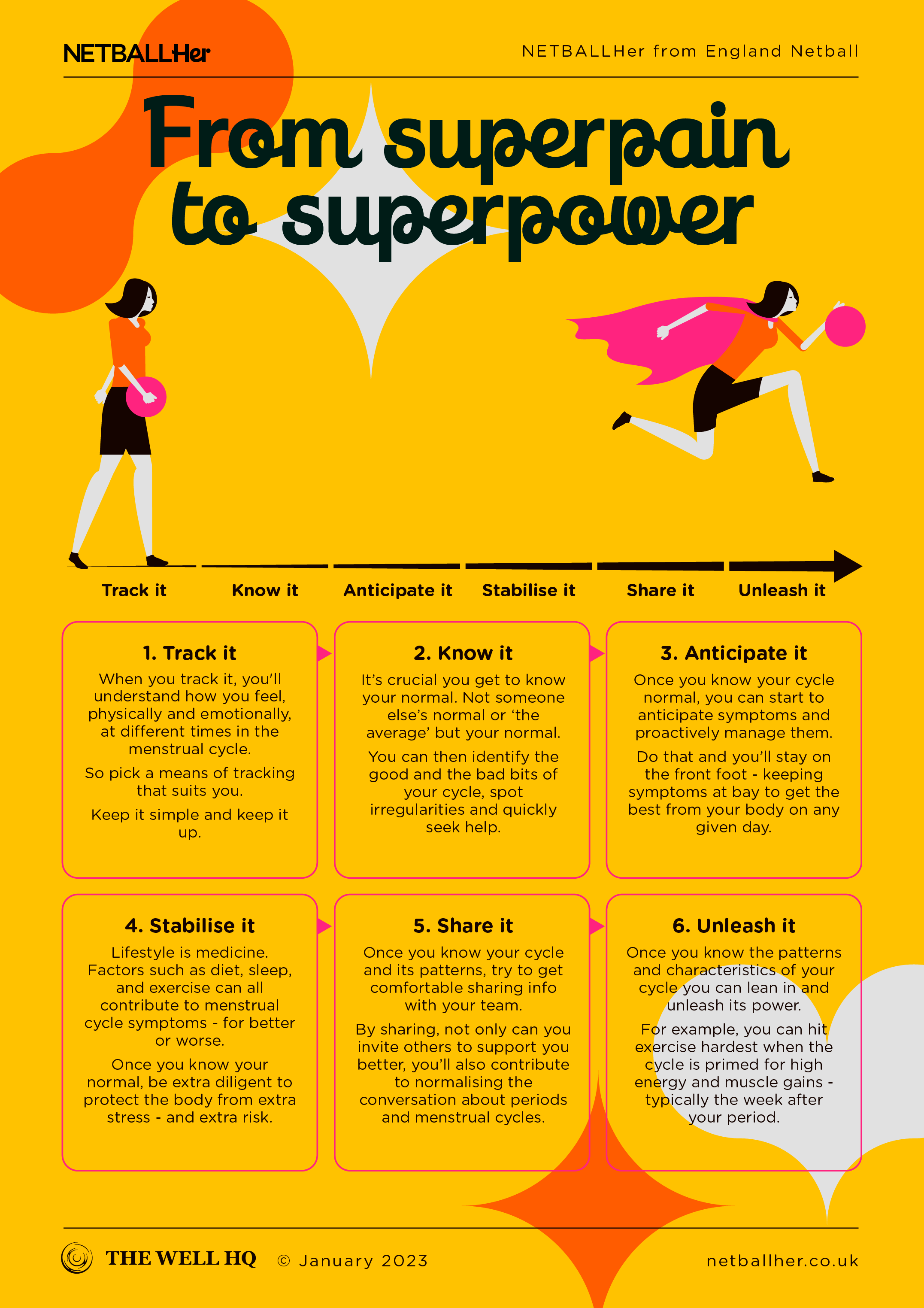Click play for an audio readthrough of this article
The key word is might – here’s what the science says
The good news for netballers using hormonal contraceptives is that, on the whole, researchers haven’t found any significant differences in the performances of active women using oral contraceptive pills* compared to active women having a natural menstrual cycle.
In fact some studies suggest that the pill actually decreases an athlete’s risk of ACL injury. *Although we should say that research doesn’t yet exist for hormonal contraceptive methods beyond the pill, and the results of those studies vary.
Still, scientists suggest that, at the very least, athletes shouldn’t be concerned about hormonal contraception impacting their performance and, at the better end, an individualised approach can show more precisely how each athlete responds to hormonal contraception and the degree to which it helps or hinders their training and performance.
So sticking with the science, here are a few ways that the pill might affect you as a netballer:
Developing strength
Androgens are hormones that influence growth, including muscle growth, in both men and women. We often think of androgens as male hormones (and they are produced in much higher quantities in males) but women produce small amounts of these hormones naturally too. One of androgens’ key jobs is to help us repair and grow muscle in response to exercise, and to make us stronger over time.
The synthetic hormone in the pill, progestin, is derived from testosterone and some types of contraceptive pill (often the ones used to treat symptoms such as acne and body hair) are termed ‘anti-androgenic’, meaning they suppress the effect of our natural testosterone. A pill that’s ‘anti-androgenic’ can therefore impact the body’s ability, over time, to build muscle and develop strength as effectively as women on other types of hormonal contraceptive, or women having a natural cycle.
Amplifying appetite
We know that bodyweight can fluctuate across the menstrual cycle, but it can also be affected by hormonal contraception too. Research shows that while taking the pill might not directly cause weight gain, it might affect behaviours that can cause women to gain weight.
It’s thought that the synthetic hormones might increase appetite, decrease feelings of being full, and increase visceral (tummy) fat deposits.
Lowering the ceiling of aerobic capacity
While your athletic performance capacities, such as strength, speed and aerobic fitness, are not affected by your menstrual cycle, scientists are unsure whether the same can be said for hormonal contraception.
A 2020 review of all research into markers of athletic performance in hormonal contraception users, versus those with a natural menstrual cycle, found ‘a potentially negative influence’ on performance when using an oral contraceptive pill.
One study from the University of California tested the effects of the pill on women’s aerobic capacity, a marker of endurance fitness. In that study, women were tested throughout their natural menstrual cycle, and then all participants took the same pill for four months.
The results showed that aerobic capacity remained stable across the natural menstrual cycle, as we’ve seen in numerous other studies, but aerobic fitness decreased by 11% – and peak power on a cycling (as in bicycle) test decreased by 8% – when the women started taking the pill.
In another study, this time in Canada, aerobic capacity was measured in active women across their natural menstrual cycle and then participants were assigned to take either a hormonal contraceptive pill or a placebo pill. This research found that when women were using the pill, they had about a 5% decline in their aerobic capacity compared with a 1.5% improvement in the placebo group. Those on the pill also showed an increase in body fat.
Changing minds
Research shows that women on the pill may experience structural and functional changes to the brain, particularly in the hippocampus – the part of the brain that helps us learn and remember.
Women on the pill have been shown to give up more quickly on unsolvable word puzzles and perform worse in difficult tests compared with women not on the pill. Anecdotally I hear from active women who describe a slowness in their decision-making or ability to read the game when on the pill. And while there isn’t yet any specific sports research on this topic, there’s certainly some correlation between the stories we hear and what the science currently shows.
There’s also compelling evidence for the link between the use of hormonal contraception and poor mental health. A Danish nationwide study has found that women on hormonal contraceptives are 50% more likely to be diagnosed with depression within six months of starting to use it, and 40% more likely to be prescribed antidepressants than women with a natural cycle.
The data from this study also shows that, in younger women aged 15 to 19, the depression risk is even greater. This is extraordinary and makes us wonder why we don’t talk about this risk more openly … or why doctors don’t, at the very least, make women aware when handing over the pill.
Your body, your choice
Not all women will experience these performance-impacting effects when taking hormonal contraception. Maybe you’ve happily used hormonal contraceptives for years, if not decades, and feel none of this applies … or maybe you’re now able to join some dots and put your finger on why you feel like you do.
Whatever the case, we hope you feel better informed about the impact hormonal contraception might have on you as a netballer … and you as you.
Because that’s the key thing. Your decision to take hormonal contraception (or not) is made up of numerous strands.
Whether or not it’s right for you is a decision based on the many parts of your life that make you you. The important thing is to be informed and weigh up the pros and cons versus who you are, where you’re at and where you’re going.
As a reminder, the content of the course belongs to The Well HQ. You have permission to access and use the content yourself or, if you are an organisation, for the number of users selected, but are not otherwise permitted to share such content with others, all in accordance with our Course Terms and Conditions.

